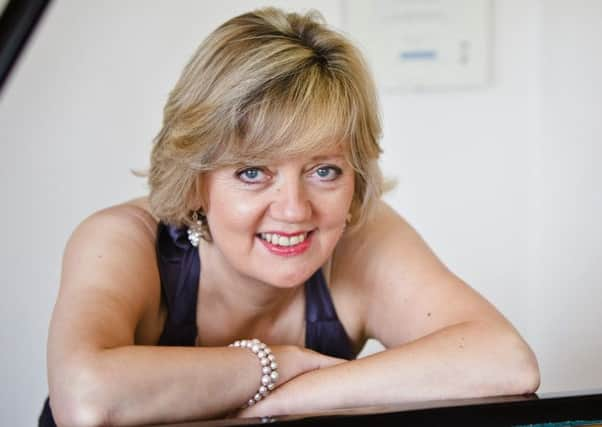Pianist explores Chopin’s unique creative genius


After addressing them on Beethoven a couple of years ago, she now turns her attention to Chopin for their meeting in Chapel of the University of Chichester on the Bishop Otter Campus on Wednesday, March 11.
As well as looking at Chopin’s unique creative genius, Angela will consider the influences which Chopin’s Polish heritage, Italian opera and the Parisian salon music of the time had on the development of his distinct musical voice.
Advertisement
Hide AdAdvertisement
Hide AdShe will illustrate her talk with slides and performances of some of his lesser-known, as well as his best-loved, piano music.
“What I want to try to give is an idea that Chopin is not the kind of dreamy romantic easy-listening type of composer some people think, but to try to link into the background of what influenced him and how unique he was in terms of his progress and harmonies and the way he used the piano.
“It’s very hard to say how people see Chopin, but some people do see him in that easy-listening light, and why not, to a certain point, but what I would like to show is the great passion and great grit to his music which was transformative of the whole history of western music after him. A major point, I think, was his nostalgia for his homeland, those mazurkas and polonaises he kept returning to. They had a great effect on him, especially as he spent half his life in exile. He went back all the time particularly to the mazurka which typified for him everything that was Polish.
“He stood out from his contemporaries. He didn’t care for his romantic contemporary composers, but he loved Italian opera and really managed to transform the piano technique to imitate opera in an entirely-pianistic way.
Advertisement
Hide AdAdvertisement
Hide Ad“He is an incredibly-difficult composer (to play). Some of it you really baulk. It is very difficult, but at the same time it lies under the fingers in a way that it just doesn’t with some other composers, someone like Schumann perhaps at times. Chopin was one of the most famous pianists in the country at the time, if not the greatest. But he didn’t like playing in public. He had a very quiet tone. People complained about that soft tone. He was more suited to more intimate performance rather than the large concert hall, but his improvisational skills were completely magical. He just lifted everything from the past into the future, not just the whole register of the piano, but also the way he transformed fingering and pedalling.”
All aspects Angela is looking forward to expounding at her lecture-recital: “It’s quite hard, but I do love combining the two aspects, the performance and the lecturing. I like to try to bring that all alive.”
Angela has taught at the University of Chichester for the past four or five years: “I teach the piano, and I am going to expand a little into helping students into doing lecture-recitals. The music department at the university is a wonderful department. I love the variety, the way all the different aspects mix together. It is one of the biggest university music departments in the country.”
Visitors are welcome to any Funtington Music Group meeting for a ticket price of £15 payable at the door or pre-booked on 01243 378900. All meetings are held at 7.30pm on Wednesdays.